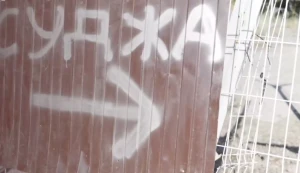
After Prigozhin's mutiny, Putin does not know who to trust — General Hodges
Russian President Vladimir Putin's position has been significantly weakened after the recent mutiny attempt by PMC Wagner leader Yevgeny Prigozhin
This assessment was made by General Ben Hodges, a former commander of the US Ground Forces in Europe, on Espreso.
"What we've seen over the last four days is that Russia is facing a lot of problems and cracks within the Russian command," Hodges said, adding that the morale and unity among Russian soldiers are visibly deteriorating. According to General, President Putin is currently facing a situation where he cannot determine who he can rely on. He lacks loyal allies, and even influential figures like Patriarch Kirill are not fully supportive. As a result, Hodges believes that the Russian president is currently very weak and vulnerable.
Prigozhin's mutiny in Russia
For several months, there has been a conflict between Yevgeny Prigozhin, the financier of Wagner PMC, and the Russian Ministry of Defense. However, the situation escalated quickly on the evening of June 23.
Allegedly, Russian troops launched a missile attack on the Wagner base. Yevgeny Prigozhin, the leader of the Wagner PMC, announced a "march of justice" and stated that 25,000 mercenaries were heading to Moscow after the Russian leadership refused to hand over Defense Minister Sergei Shoigu and Chief of the General Staff Valery Gerasimov.
On Saturday, June 24, in addition to Rostov-on-Don, where they initially gathered around the headquarters of the Southern Military District, the Wagner group also took control of Voronezh. Their convoys, which had diverted from the Ukrainian border, were moving towards Moscow. Military aircraft and artillery under Shoigu's control attempted to stop them. The units of Wagner PMC were last spotted in the Lipetsk region. In Moscow itself, defensive positions were established, trenches were dug, and all security forces were mobilized.
However, on the evening of June 24, the press service of the self-proclaimed president of Belarus Lukashenko published a statement indicating that the head of the PMC Wagner was willing to halt the movement of the military columns and negotiate with the Kremlin. Allegedly, Prigozhin agreed to this during a conversation with Lukashenko.
Instead, Prigozhin announced that the Wagner group had stopped their advance and returned to their field camps before reaching 200 km from Moscow. He stated, "In a day, we traveled without reaching 200 km to Moscow. During this time, no blood was shed. However, the moment may come when blood will be spilled. Therefore, taking full responsibility, we are turning our columns around and heading back to the field camps as planned."
Later, Prigozhin and his fighters left the headquarters of the Southern Military District in Russia. Russian dictator Vladimir Putin promised that Prigozhin would be allowed to go to Belarus, and Russia would drop the criminal charges against him.
The Institute for the Study of War predicts that an agreement facilitated by Lukashenko is likely to dissolve Wagner PMC, led by Prigozhin, in its current form. However, some parts of the organization may continue to exist under the Russian Ministry of Defense.
Russian media reported on June 26 that Wagner PMC leader, Yevgeny Prigozhin, is still being investigated for his alleged involvement in organizing a rebellion in Russia. Despite the Kremlin's statement that the case is closed, the investigation is ongoing.
On that day, Russian dictator Vladimir Putin spoke about Prigozhin's mutiny. He mentioned three choices for the future actions of Wagner's PMC fighters.
Yevgeny Prigozhin, however, stated that the rebellion was aimed to protect Wagner and not to overthrow the government. He called it a "march of justice" and explained that the attack on Moscow ceased because the mercenaries didn't want a bloodshed.
- News












































